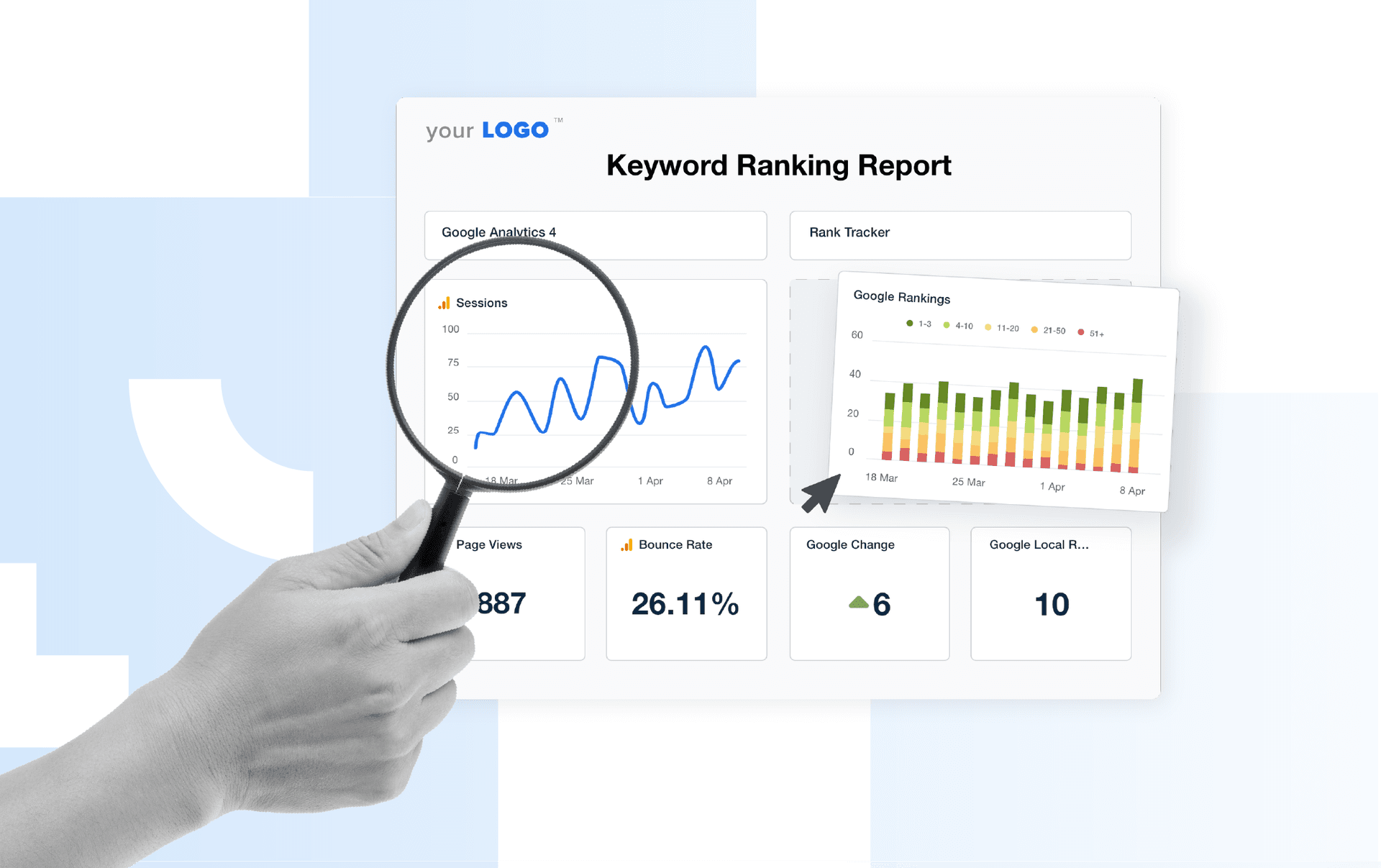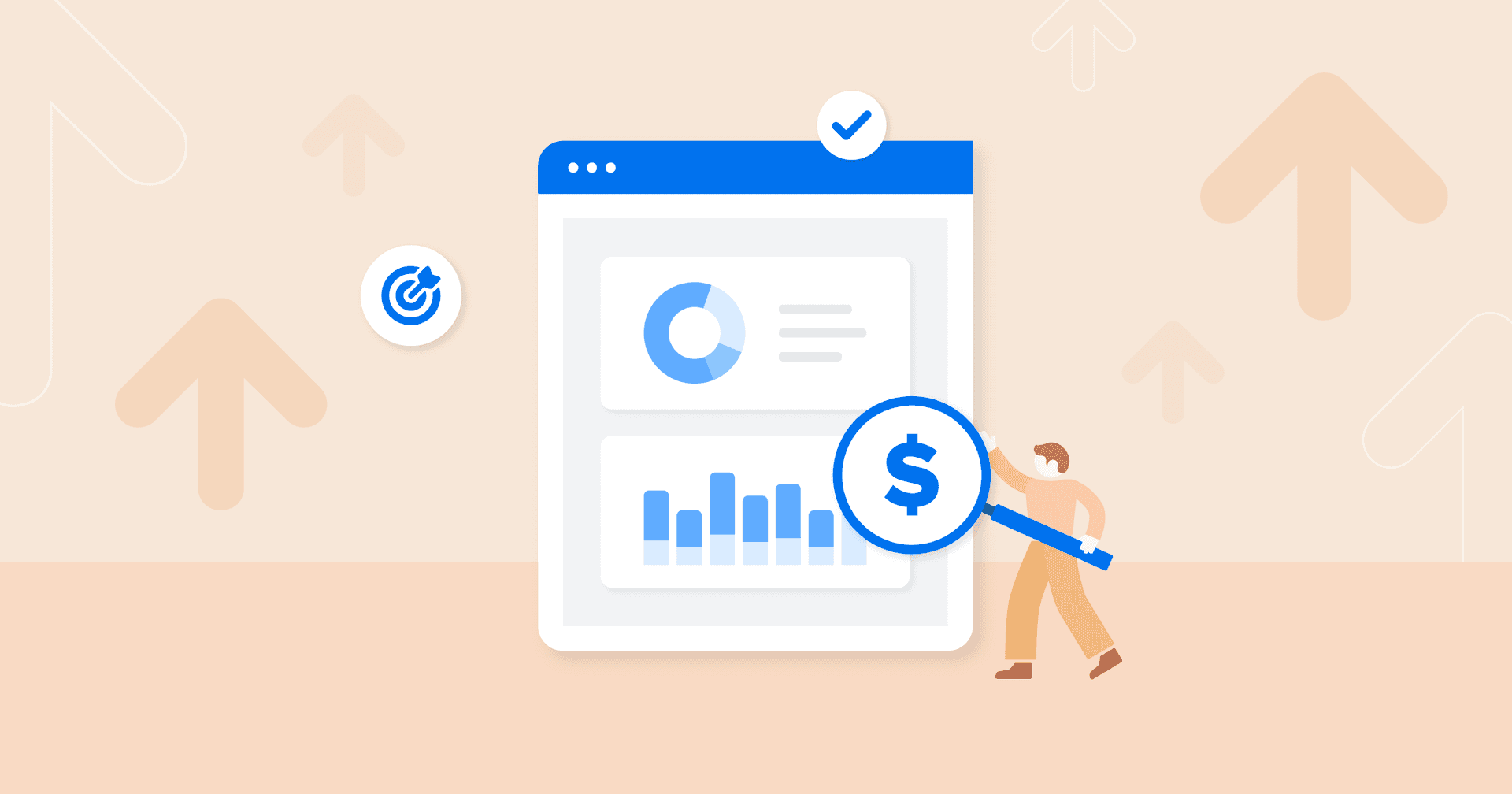Table of Contents
QUICK SUMMARY:
Understanding the different types of keywords helps marketers craft targeted SEO and PPC strategies, create content, and enhance online visibility and engagement. Understanding the different keyword categories is the first step to creating an effective marketing strategy for your clients. Read on to learn about the most common types of marketing keywords every agency should know.
Generating keyword ideas using professional SEO tools is essential. These tools help find short-tail, medium-tail, and long-tail keyword ideas, applying filters, and utilizing these keyword ideas for content creation and SEO optimization.
If you’re an agency lacking clarity about the types of keywords for SEO or PPC or when you should use each, you’ve come to the right place.
No client wants to review a monthly performance report only to realize their business showed up on the last ‘o’ of a ‘G o o o o o o g l e’ search engine page after some serious SEO keyword efforts were made– that’s a big no-no o o o.
Another nail-biting situation is injecting ad spend into PPC keywords that didn’t even result in a high search volume or conversions. That’s a digital marketing blunder that you don’t want as a point to discuss on a meeting agenda.
It’s especially concerning when you’ve meticulously embedded keywords into your client’s web content, meta descriptions, ALT tags, and all other relevant places. You may scratch your head in disbelief and wonder, ‘How did this happen?’
The reality is that you need to strategize and incorporate different types of keywords as part of your client’s overall digital marketing strategy.
Why Are Keywords Important?
As a marketing agency, it’s second nature to associate keywords with staying on top of a search ranking or aiming to hit your client’s SEO KPIs and/or Google Ads reporting month after month. After all, you’re likely having team meetings and client discussions about this each week.
Keywords Are All About User & Search Intent
While these are all critical pieces of the puzzle, remember to consider user intent in the overall picture. This is the foundation for understanding why different types of keywords are important in the first place.
Search intent keywords aren’t just a matter of trivially tossing terms around your client’s content and hoping for the best outcome. It’s about:
Delving into what customers are experiencing
Understanding your client’s product offering
Creating relevant content for user inquiries
Clients are often interested to learn what queries people are using to find their business on search engines. These keywords provide more data about the customer profile and are critical to developing an SEO strategy. Valerie Jennings, CEO of Jennings Social Media & MarTech
The effect of using different types of keywords strategically is two-fold. It results in users finding the information they’re looking (aka “helpful content“) for while increasing the probability of showing up on that highly-desirable first spot of a search engine page. As your client’s content gains relevance over time, it increases their brand authority and, by extension, search engine ranking.
Understanding search queries, especially long-tail keywords, and how Google's word-vector-based technology interprets them, is essential for optimizing content effectively.
It Isn’t Always About High Search Volume Keywords
Sometimes, there’s a treasure to be found in lower-volume keywords with high conversion potential. That way, your client’s content won’t be drowned out by broad keywords or what all the competitors are doing. Generating keyword ideas using professional SEO tools can help identify short-tail, medium-tail, and long-tail keywords that are often overlooked but have high conversion potential.
It’s imperative to strategize, brainstorm ideas, and devise a plan of action to maximize keyword impact. And even as the digital sphere continues to evolve, it’s clear that keywords’ importance remains the same.
Stay One Step Ahead of The Competition
Just as your agency is trying to strike gold with an abundance of highly visible, relevant keywords, trust that your competitors are doing the same. Understanding search queries is crucial to evaluate what’s working for competitors.
That’s where a rank tracking tool comes in. This valuable exercise monitors any changes to your clients’ keyword ranking, and it’s an opportunity to evaluate what’s working for your competitors.
Customize your clients’ reporting experience and choose which types of keywords to track (even by location for multi-national companies). Check for significant developments and make improvements promptly–try AgencyAnalytics free for 14 days.
Aside from having a watchful eye on the competition, keyword monitoring helps you capitalize on backlink opportunities to increase paid and organic traffic. And of course, the right strategy boosts overall brand visibility.
In addition to monitoring the different types of keywords, be sure to track other SEO metrics, which will give you a complete picture of what’s happening. For example, a significant change in organic traffic to a particular webpage may be an opportunity to incorporate new keywords or discover a new target audience.
Keywords Connect With Content Relevance
The more you understand your client’s audience, the more you’ll have applicable keywords. With this knowledge, you’ll be equipped to create content their prospects or existing customers are actually looking for.
It's important to fit in keywords where they make sense, you always want it to feel natural. Headings and subheadings are an especially great place to fit in keywords, and possibly location indicators too!
Jessica Tappana, Founder of Simplified SEO Consulting
Relevant content with the strategic use of SEO keywords establishes your client as an authority. At the same time, your client’s audience will greater resonate with content that speaks directly to them. Keyword stuffing does your agency (and client) no favors–create content with appropriately incorporated keywords to get the best outcome.
Agency Tip: Understand your clients' needs through customer journey mapping. Start by identifying emotions and experiences at each stage of the buyer's journey. Then, use these insights to create impactful content, including keyword combinations, phrases, and questions.
Keywords Improve Your Clients' Search Rankings
Think of the different types of keywords as the bridge between where users are at and the information they’d like to access. A robust keyword strategy builds a solid bridge and allows users to reach their desired search destination more quickly.
As this continues over time, Google gives your clients' webpages a ‘green light’ and recognizes it as a trustworthy, authoritative source of information. In turn, keywords lead to increased search volume. Ultimately, it improves your clients' search engine rankings while demonstrating your agency’s ROI.
Types of Keywords Your Agency Should Know (With Examples)
Not all keywords are created equally. And you need to know the different types of keywords to optimize your clients' digital marketing strategies.
Some are short-tail, and others are long-tail keywords. There are exact match, on-site, and broad match keywords, too. With so many to choose from, you’ll need to know what to use and where. We’ll touch on seven types of keywords for easy reference:
Targeting Keywords
Keywords by Length
On-site Keywords
Google Ads Keywords
Intent Keywords
Seasonal or Trending Keywords
Answer Engine Optimization (AEO) Keywords
1. Targeting Keywords
Targeting keywords reiterate your clients' industries, products, or services. Let’s explore six types of targeting keywords that your agency should know.
Market Segment Keywords — Broad search terms defining a product category
These types of keywords are more general and refer to a product or service within any given industry. Usually, these types of searches result in a range of products/services across various brands or businesses or even other items related to the industry. E.g., reading lamp
Customer-Defining Keywords— Targeted phrases describing a specific audience
Use customer-defining keywords to hone in on a specific subset of your clients' target audiences. These types of keywords are usually inputted by users who are searching for a particular type of product or service specific to a personal attribute. E.g., reading lamp for students
Agency Tip: To generate impactful customer-defining keywords, create an ideal customer profile (ICP) that outlines the types of businesses your agency or client is targeting. Using specific characteristics like industry type, geographic location, and personal attributes helps you to generate relevant keywords and even target new audiences.
Product Keywords — Keywords focused on a client’s specific offerings
These types of keywords are specific to a name associated with your clients' product offerings. It’s highly advised to coin a term for each product so it’s easily distinguished and searchable. E.g., Best Buy Essentials Lumen reading lamp
Branded Keywords — Searches that include a brand name
Branding is power! Branded keywords are inputted when users search for your clients' business and product offerings (or attributes of it).
E.g., Amazon Basics reading lamp
Competitor Keywords — Keywords tied to competing brands or products
On the flip side, it’s no secret that users will likely check out the competition when doing their keyword research.
This keyword type is a combination of competitor brand names and an associated product offering (which is good to keep an eye on, in conjunction with monitoring keyword performance). They may think they know what they want, but that doesn't mean you can't point them in your client's direction instead. E.g., IKEA reading lamp
Initially, we get the list of primary competitors from the client based on their experience & knowledge of their own industry. Next, we explore digital channels such as Google Ads Auction reports. Also, we check results from search engines (organic and paid) for the primary keywords and analyze the top sites.
Pranav Patil, Senior Paid Ads and Measurement Specialist at Ollo Metrics
Geo-Targeted Keywords — Location-based keywords for local SEO visibility
If you have clients whose businesses heavily rely on local marketing, incorporate geo-targeted keywords (not only in the body of content but also in metadata). As the name implies, these types of keywords are based on location and are inputted mainly by users within the vicinity of your client’s business or they may be in the future. E.g., New Jersey lighting store
If you can fit keywords or location indicators into the meta title and description, that's great. A well-written meta title and meta description can lead someone from simply seeing the page or blog in their search results to actually clicking on it and engaging with the content.
Jessica Tappana, Founder of Simplified SEO Consulting
Generic Keywords — Broad umbrella terms not tied to a brand
Generic keywords are the foundation of any keyword strategy. They’re broad, non-branded terms that describe an overall product or service category rather than a specific business or offering. Because they attract a wide range of users at the top of the marketing funnel, these keywords often have high search volume—but also high competition.
E.g., Marketing agency
2. Keywords by Length
The name is pretty self-explanatory! This subset of keywords considers the length, which can tell you a lot about the specificity of a product/service a user is looking for. These search inquiries also point to specific stages in the buyer’s journey. Here are the three types of keywords by length to note.
Head Keywords or Short-Tail Keywords — One or two words with high competition
Short-tail keywords are broad and competitive terms associated with a significant search volume (usually a 1-2 word term). As you can imagine, appearing in the top spots on these types of searches is quite challenging. E.g., leggings
Mid-Tail Keywords — Two to three words balancing reach and intent
Mid-tail keywords hone in more on a descriptive factor of your clients’ products or services than short-tail keywords, usually ranging from 2-3 words. The competition for mid-tail keywords can be stiff, given its relatively high search volume (but to a lesser extent than short-tail keywords). E.g., exercise leggings
Long-Tail Keywords — Highly specific, lower-volume keywords with stronger intent
Long-tail keywords are particular to your clients’ products or services and have less search volume than short-tail and mid-tail keywords. However, users inputting long-tail keywords are closer to the conversion phase and are acutely aware of what they are looking for. Understanding search queries helps in identifying long-tail keywords and their relation to the search demand curve.
Therefore, capitalizing on long-tail keywords has the potential to increase your clients’ conversion rates (which could range from in-person sales, online transactions, qualified lead generation, app downloads, or whatever their call to action is). And using these insights to write longer-form, keyword-infused content will help to boost credibility.
E.g., comfortable women's exercise leggings
I'll always say quality over quantity, however having "long enough" content is important when it comes to SEO. It's important to show Google that you are an expert on the topic you're writing about. Additionally, a higher word count gives you more room to fit in important SEO elements like keywords, external links, and photos that you can optimize.
Jessica Tappana, Founder of Simplified SEO Consulting
3. On-Site Keywords
On-site keywords drive SEO traffic to content such as blogs and landing pages. Here are the two types of on-site keywords that you should use.
Primary Keywords — The main search term driving a page’s topic
Think of a primary keyword as the main point of focus for your client’s content. Weave a primary keyword within their content as seamlessly and naturally as possible (and also within crawlable site areas such as meta titles and ALT tags). That way, search engines associate your client’s brand with the primary keyword. E.g., scented candles
Related Keywords or LSI Keywords — Contextual variations supporting the primary keyword
Think of related or Latent Semantic Index (LSI) keywords as secondary extensions of a primary keyword. In other words, related keywords are variations and common associations with a primary keyword. It considers intent by listing the terms, inquiries, phrases, and questions frequently associated with a primary keyword.
Search engines continue to work on understanding user intent and the context behind queries, and not just the words themselves. This means that keyword strategies should prioritize content that aligns with the searcher's intent, rather than relying solely on exact-match keywords. E.g., scented candles for sale, scented candle wax melts, scented candles for relaxation
Seed Keywords — Foundational terms for generating keyword variations
The starting points for keyword research. Broad root phrases from which variations and keyword clusters are generated.
E.g., candles
Client-Centric Keywords — Audience-related terms aligned with customer lifestyle
Understanding the customer base opens up a treasure trove of related keywords that connect to your client's target audience in new ways.
In other words, client-centric keywords are not directly related to the product or service offered by your client but would appeal to the target consumer. These types of keywords are great for generating targeted content to create awareness of your client's brand.
E.g., how to set a romantic mood, ways to relax, benefits of aromatherapy
4. Google Ads Keywords
Google Ads keywords are words or phrases about your client’s product or service used to streamline where their paid search ads appear. Based on what a user searches for, your client’s ad may show up if it’s relevant and associated with their search terms. Google Ads optimization is essential for your client’s ads to show up to the right target audience. Incorporating Google Ads keywords is a vital part of that process.
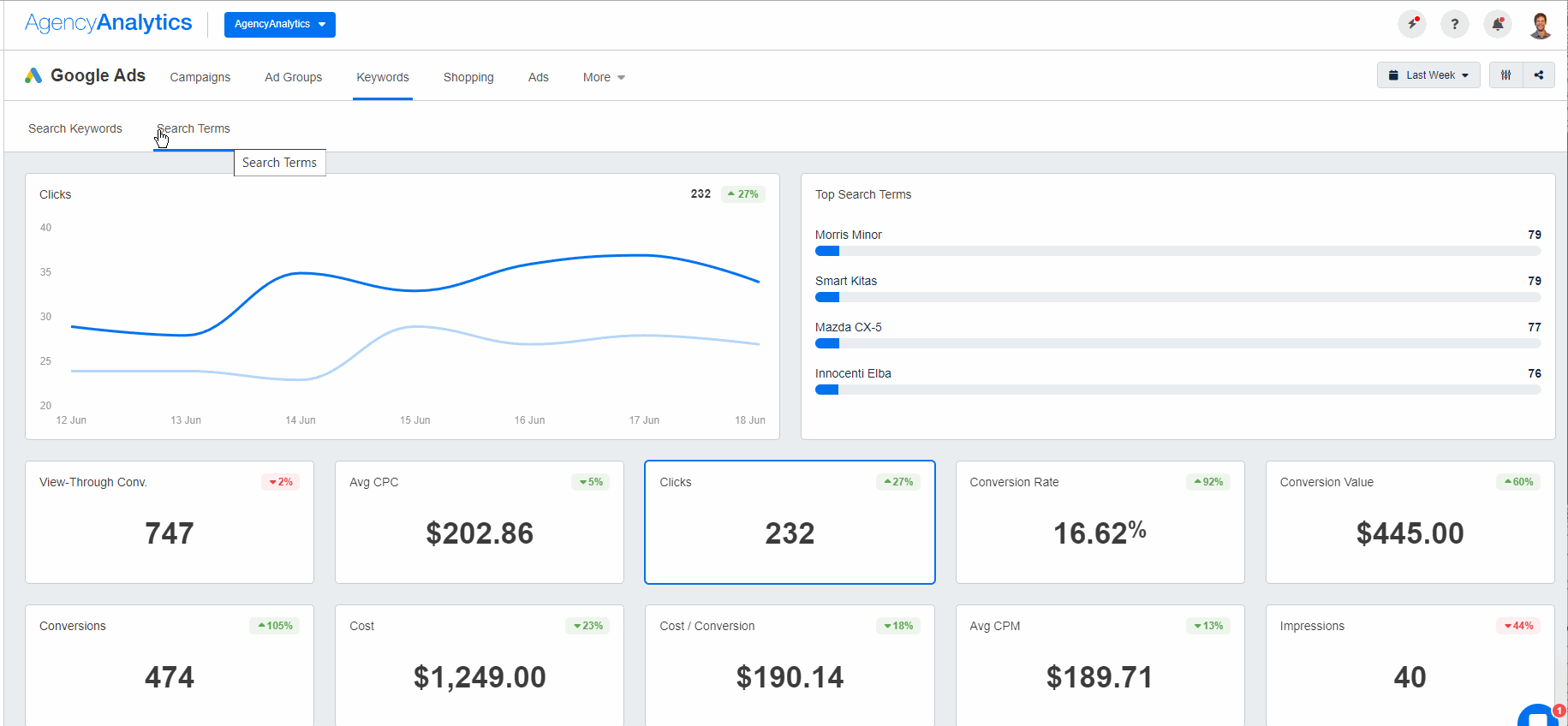
Monitor your clients' Google Ads keywords and search terms to understand user intent more intricately–it’s free for 14 days on AgencyAnalytics.
Broad Match Keywords — Ads triggered by loosely related search terms
When broad match keywords are used, your client’s Google Ads may appear to users who searched for those specific keywords and other related terms.
This broadens your client’s ad reach without having to create an excessive, extensive keyword list. However, as most PPC marketers know, Google can create some unique broad matches that are not always in your client's best interest.
E.g., If ‘exercise mat’ is used as a broad match keyword, your client’s Google ads could also show up on related searches such as ‘at-home exercises,’ ‘yoga stretches,’ ‘gym equipment,’ ‘bodyweight exercises’ or even 'bath mats.'
Phrase Match Keywords — Ads shown for searches containing the phrase
Phrase match keywords tell Google to show your client’s ad only to users that inputted a specific phrase within their search inquiry, plus or minus a few words.
While other words may be included before or after phrase match keywords, the exact term, or a close variant, must be a part of a user’s search for your client’s ad to appear.
E.g., If your client uses ‘exercise mat’ as phrase match keywords, their Google ads may show up to users that search for ‘exercise mat for yoga’ or ‘cushioned exercise mat.’
Keep in mind that Google's close variant matching will include terms that may not be an exact word-for-word match. For example, 'exercise mat' could match with 'yoga mat' because the intent is similar, but should not match with 'bath mat' because that variant is too different.
Exact Match Keywords — Ads limited to very close search term variants
On the other hand, there may be instances where you want your client’s Google ads to show up only when a user searches for a specific term or a very close match to it. This may also include variations of exact match keywords, such as synonyms, slightly varied word combinations, and frequently made misspellings or typos.
In this case, exact match keywords are the way to go and give you the most control over who sees your client’s ad. However, exact match keywords also limit the total search volume because you need to figure out every possible variation that could be searched. E.g., If your client’s exact match keywords are ‘exercise mat,’ their Google ads may appear for users that search for ‘mats for exercise’, ‘exercising mat’, or ‘mat to exercise on.’
Negative Keywords — Excluded terms to prevent irrelevant ad clicks
Looking for a way to further refine who sees your client’s ads? When negative keywords are used, your client’s ads are excluded for specified keywords or phrases. You may want to implement this strategy if your client’s keywords are frequently grouped with an unrelated topic.
E.g., If your client’s Google ad is about exercise mats’ specifically for advanced-level yoga, you may choose to exclude ‘foam exercise mats’ or ‘thick exercise mats.’ This would eliminate the possibility of ad spend being attributed to searches or clicks that didn’t stem from your client’s ideal audience.
Close Variant Keywords — Variations including plurals and misspellings
Close variant keywords help ensure your client’s ads still appear when users search for slightly different versions of their target keywords. These variations include plural or singular forms, reordered words, misspellings, abbreviations, or commonly used synonyms.
This feature helps capture additional search traffic without the need to manually list every version of a keyword in your campaign. However, it’s important to monitor these closely to ensure Google’s “close matches” don’t drift too far from the intended meaning or user intent.
E.g., If your client’s target keyword is 'custom running shoe', their ad may also show up for searches like 'custom running shoes', 'customized running shoe', or 'running shoes custom.
Agency Tip: f you’re simultaneously running other ad campaigns, build a PPC dashboard. Use this consolidated, intuitive reporting format to analyze the overall marketing picture and make recommendations for future campaigns.
5. Intent Keywords
As the name implies, this type of keyword considers user intent and infers what kind of action they may take. Intent keywords are tied to the stages of the buyer’s journey and will give you clues on which stage a user is at based on their search inquiry.
Informational Keywords — Searches seeking knowledge or educational content
Users who input informational keywords into search engines are likely looking for more insights, details, and key features of your client’s product or service. As you can infer, users are at the awareness stage and are seeking more information before moving further along the buyer’s journey.
E.g., A user may input ‘how to choose the best facial cleanser’ to learn more about options and possibilities.
Navigational Keywords — Searches aiming to reach a specific website or location
This type of keyword is inputted by a user that wants to be redirected to a particular website, location, or product page. It’s likely that the user is in the consideration phase and wants more information about your client’s product or service before making a firm decision. E.g., Clearasil website
Commercial Keywords — Comparison searches showing buying consideration
This type of keyword is typically inputted when a user is serious about conversion but is still weighing the best options. Users that input commercial keywords into search engines are likely just a step above consideration but still not quite at the conversion phase (though pretty close).
E.g. ‘facial cleanser reviews’ and ‘Clearasil vs. Neutrogena facial cleanser’ both indicate that a user may be serious about purchasing but is still exploring the best choice.
Transactional Keywords — Keywords signaling immediate purchase intent
This type of keyword is used by prospects who intend to perform an action such as purchasing an online product from your client, downloading an e-book, or starting a free trial. Users are likely aligned to the conversion stage when transactional keywords are utilized.
E.g., ‘buy Clearasil cleanser online’ corresponds to a user who is likely ready to purchase at that point in time.
Local Intent Keywords — Search phrases targeting nearby businesses or services
Local intent keywords are used by searchers looking for products or services in a specific geographic area. These search phrases often include city names, neighborhoods, or modifiers like “near me” and “open now.” They’re essential for clients who rely on local SEO—such as restaurants, home service companies, or brick-and-mortar shops—because they connect nearby customers with immediate buying intent.
Optimizing for local intent keywords boosts visibility in local map packs, drives foot traffic, and increases calls or bookings from users ready to take action.
E.g., “facial spa near me.”
Negative Intent Keywords — Exclusions that filter out unqualified audiences
Negative intent keywords help your client avoid wasting ad spend on users whose search intent doesn’t match their offerings. These exclusions prevent ads from appearing for irrelevant or misleading searches that may share similar phrasing but attract the wrong audience.
By filtering out unqualified traffic, your agency ensures ad budgets are focused on high-quality leads with real purchase potential. This improves click-through rates, conversion efficiency, and overall campaign ROI.
E.g., "salon internship"
6. Trending and Seasonal Keywords
Trending keywords are those tied to current events, viral topics, or emerging conversations in your industry. These keywords have a short but high impact, driving significant traffic while the topic is hot. Examples include buzzwords from breaking news, cultural moments, or popular memes.
On the other hand, seasonal keywords are tied to recurring events or predictable periods throughout the year. Think "Valentine's Day gifts," "Black Friday deals," or "summer vacation destinations." These keywords tend to spike annually, offering a dependable opportunity for planning campaigns well in advance.
7. Answer Engine Optimization Keywords
Search behavior is evolving—fast. With the rise of AI-powered platforms like Google Gemini, Microsoft Copilot, and ChatGPT, people are searching less like robots and more like real humans. Instead of typing short, fragmented phrases, they’re asking full, natural questions:
“What’s the best way to increase organic traffic for a local business?” “How do I optimize my website for voice search?”
That’s where Answer Engine Optimization (AEO) comes in. It’s the next evolution of keyword marketing—focusing on conversational, question-based, and context-rich keywords that help your clients’ content surface in voice search, AI overviews, and featured snippets.
AEO keywords are designed to answer a user’s question directly and helpfully. When your client’s content provides a clear, well-structured response, it increases their visibility across traditional search engines and AI-driven “answer engines.”
Here are a few keyword types that fall under the AEO umbrella:
Question-Based Keywords — Direct user queries in natural language form
These are long-tail, natural language queries that align with how real users search for information. They typically begin with “who,” “what,” “where,” “when,” “why,” or “how.”
Examples:
“What are the best running shoes for beginners?”
“How does keyword intent affect SEO ranking?”
“Why are branded keywords important in marketing?”
Agency Tip: Create FAQ sections, blog posts, or service pages that use these question keywords as H2 or H3 headings. When your content mirrors a user’s question structure, it’s more likely to appear in Google’s “People Also Ask” boxes and AI search overviews.
Conversational Keywords — Voice search phrases that mimic spoken language
Conversational keywords mimic natural speech patterns used in voice search or AI chat queries. These are typically longer and more specific than standard long-tail keywords.
Examples:
“What’s the easiest way to track keyword rankings for multiple clients?”
“Can I use the same keywords for Google Ads and SEO?”
“Show me tools that automate SEO reporting for agencies.”
Why They Matter: Answer engines interpret conversational queries using natural language processing (NLP) to understand intent and context. Content optimized for conversational keywords helps your client’s pages appear when users interact with AI assistants or voice-enabled devices.
Intent-Driven Question Keywords — Search questions reflecting user buying stage
These keywords combine question phrasing with a specific user intent—informational, commercial, or transactional. They’re excellent for guiding your content strategy and mapping to stages in the buyer’s journey.
Examples:
Informational: “How to improve SEO for small businesses”
Commercial: “Best SEO reporting software for agencies”
Transactional: “Start a free trial for SEO dashboard software”
These keyword types connect what users are asking with why they’re asking—giving you a clearer path to create content that converts.
Search engines and AI models look for structured answers. Use short, direct responses at the beginning of each section, then elaborate with supporting details. Include:
Bullet points or numbered lists for clarity
Schema markup for FAQ and How-To pages
Internal links to related topics (e.g., “keyword strategy,” “rank tracking,” or “SEO reporting tools”)
By optimizing for AEO keywords, your clients’ content doesn’t just rank—it gets chosen as the answer.
Examples of AEO Keyword Use Cases
Keyword Example | Search Intent | Recommended Content Type |
|---|---|---|
“How do I choose the right keywords for PPC?” | Informational | Blog post or guide |
“Best keyword reporting software for agencies” | Commercial | Comparison or feature page |
“Start free trial SEO dashboard” | Transactional | Landing page or CTA |
“What’s the difference between branded and generic keywords?” | Informational | FAQ section |
“Which SEO tools help monitor competitors?” | Commercial | Product page or demo video |
Why AEO Keywords Matter for Agencies
Answer Engine Optimization bridges the gap between SEO and AI-driven search. Agencies that optimize for these keyword types gain a competitive advantage because:
They increase visibility in AI-generated overviews and voice search results.
They attract high-intent users actively seeking answers or solutions.
They future-proof client content as search engines continue integrating generative AI.
In short: AEO keywords help your clients show up where people are asking questions—and where answers matter most.
How AI Search Overviews Are Changing Keyword Strategies
The rise of AI-powered search technologies like Google Gemini and SearchGPT is shaking up the way marketers approach keyword selection and targeting. These advanced systems leverage generative AI to offer comprehensive search overviews, creating a more interactive and conversational search experience.
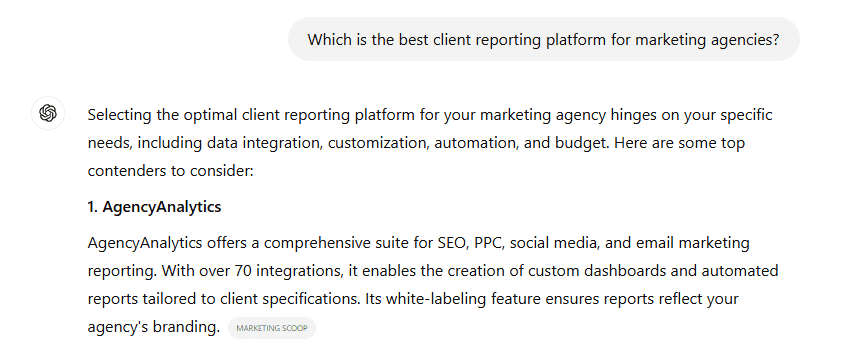
This shift is changing how users search—and, consequently, how marketers optimize their content.
Focus on Conversational Keywords AI-powered search tools prioritize conversational and natural language queries. Users now search in a way that mimics spoken language, asking questions like, “What’s the best way to boost my SEO rankings?” This shift means that targeting long-tail, question-based keywords is more important than ever.
Intent and Context Over Exact Matches AI models don’t just match keywords—they understand search intent and context. As a result, marketers need to focus on creating content that addresses broader semantic themes rather than relying solely on exact-match keywords. For example, instead of just targeting "SEO tips," content should answer related queries such as "How to improve SEO for small businesses."
Greater Emphasis on Rich Content Search overviews generated by AI often pull from well-structured, authoritative, and multimedia-rich content. Content that includes FAQs, schema markup, videos, and infographics is more likely to be featured in these AI summaries, making it crucial to invest in diverse content formats.
How To Use Keywords for SEO and PPC Campaigns
Remember, as we mentioned, it all comes back to what users are searching for, which is the foundation for both SEO and PPC campaigns. Your clients also need consistent and adaptable marketing tactics, especially when it comes to conquering the top spots on search engine results pages (SERPs) and getting those high-intent ad clicks.
Use a keyword research tool to gain more insights on usage, popularity, and search volume for SEO and PPC campaigns. This will be especially handy if you’re brainstorming keyword phrases, monitoring competitor related keywords, or searching for new opportunities.
Make sure that you're actually doing good keyword research! If you don't have an accurate idea of what keywords your ideal clients are searching, then you may spend your time optimizing your content with the wrong keywords.
Jessica Tappana, Founder of Simplified SEO Consulting
Finding the Ideal SEO Keywords
To squeeze the most benefits out of SEO keyword research, your agency should:
Understand the unique selling proposition of your client’s product offering
List any descriptive features and think of what users may search for if they’re looking for your client’s brand and/or product offering
Think of what distinguishes your client from competitors and whether there are opportunities to capitalize on less competitive keywords
Consider the types of inquiries, phrases, and questions a user may type. It helps to understand the buyer’s journey and what a user may be looking for at any point in time
Generating keyword ideas is crucial for effective SEO keyword research, as it helps identify short-tail, medium-tail, and long-tail keywords that can be used for content creation and optimization.
Choosing PPC Keywords For Maximum Impact
Alternatively, consider the following when selecting types of keywords for a PPC campaign. In this case, remember that you’re trying to get users to click on a relevant ad.
Therefore, it’s essential to:
Set a campaign goal and understand what your client is trying to achieve. Perhaps they want users to follow through on a call to action (such as filling out a form or completing an online transaction). Or maybe it’s driving traffic to a particular website. Whatever it may be, you’ll need to know a goal beforehand to ensure keywords align with a strategic objective.
Brainstorm any possible target keyword combinations after you’ve compiled your keyword research list and put yourself in the user’s shoes to understand what they’re searching for. After you’ve decided on a shortlist of keywords, check whether there are adequate search volumes. You don’t want to be in a scenario where virtually no one is using keywords you’re bidding on.
Depending on your client’s objective and where users are in the buyer’s journey, it’s helpful to include intent-based words such as “purchase,” “buy,” or “download” as part of your PPC keyword combinations.
Do competitor analysis and look for any uncapitalized opportunities. Keep in mind that highly competitive keywords will result in higher ad spend. Evaluate whether that’s an approach you want to pursue or if there are any suitable target keyword alternatives with a higher ROI.
One main benefit of PPC competitor analysis is that it allows you to keep tabs on their strategies, in addition to identifying new opportunities and tactics that you may not have considered before. It helps you identify new keywords that you may not have come across before (or even keywords you previously ignored!), opening up a whole new sector of users to target. Claire Aldridge, Digital Marketing Specialist at Victory Digital
Streamline Your Client’s SEO & PPC Keyword Reporting
Coming up with an effective keyword strategy may seem intimidating, but it doesn’t have to be! Diversify your client’s digital marketing strategy with a balanced mix of the different types of keywords while considering user intent at each buyer journey stage.
Finding good keywords is a balance between what is most popular (highest volume & highest competition) and what is most transactional (lower volume, longer tail, including phrases and questions). Typically you want to write content around one or two specific related keywords, with the mindset that you are answering the user's question & call.
Rachel Jackson, Lead SEO Specialist at Wit Digital
Once you’ve outlined the most effective types of keywords, the next step is to monitor keyword rankings and tweak them where necessary.
Whether you’re a smaller agency or you’ve been around for some time, a solid SEO reporting tool like AgencyAnalytics can help you to keep on top of your client’s keyword game. Not to mention our white labeling and client login features also add extra pizzazz to their reporting experience!
If you’re tasked with running multiple ad campaigns for your client, our PPC dashboard consolidates keyword tracking and every analytic you need–all in one place. No more sifting through numerous platforms to pull metrics. Your client’s PPC performance is just a click away!
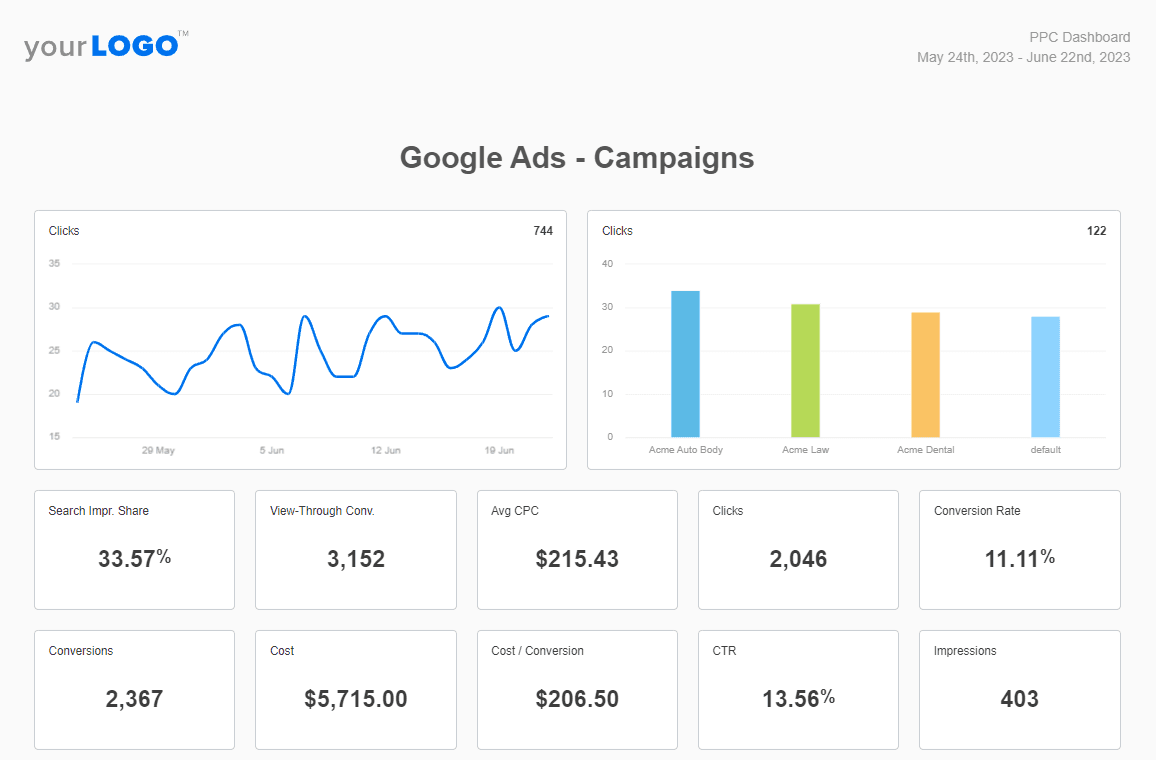
Advertising and PPC aside, tracking different types of keywords is also an integral part of your client’s organic SEO strategy. And trust that we’ve got that, too! The AgencyAnalytics SEO dashboard pools your client’s search engine optimization efforts in an intuitive, user-friendly format that’s easy to reference.
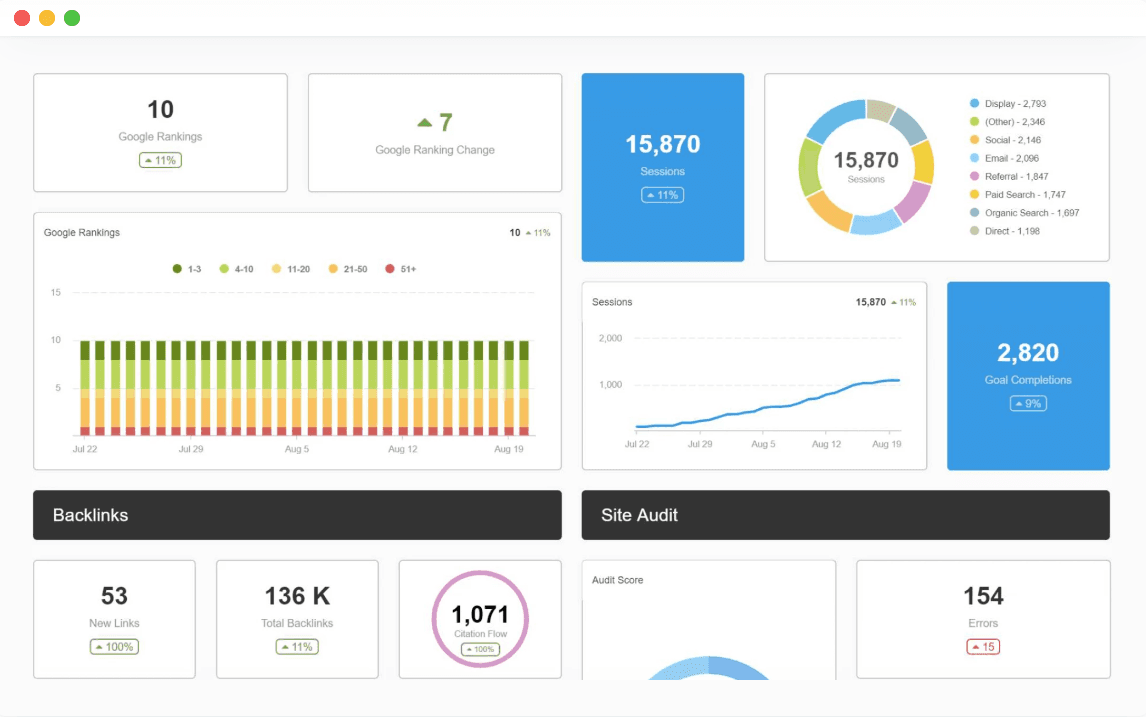
Tracking paid and organic efforts will optimize your clients' keyword strategies, increase their search engine rankings, and bring them closer to marketing success.
Stay on top of the game by saving time each month through automated reporting and real-time data updates. AgencyAnalytics is built for marketing agencies like you–try it risk-free for 14-days.

Written by
Faryal Khan is a multidisciplinary creative with 10+ years of experience in marketing and communications. Drawing on her background in statistics and psychology, she fuses storytelling with data to craft narratives that both inform and inspire.
Read more posts by Faryal KhanSee how 7,000+ marketing agencies help clients win
Free 14-day trial. No credit card required.




